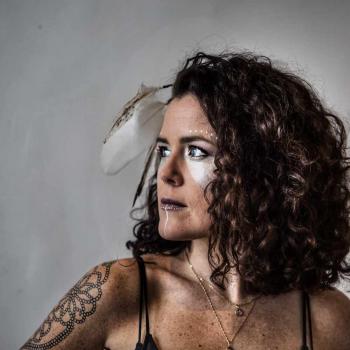It’s been five years since her first album was released, and now Iskwé’s current album ‘The Flight Within’ has been nominate for a Juno Award in the Indigenous Music Album of the Year category.
She is joined in that category by Indian City (Here & Now), Kelly Fraser (Sedna), Buffy Sainte-Marie (Medicine Songs) and DJ Shub –(PowWowStep).
The 47th annual JUNO Awards ceremony will take place in Vancouver on March 25 starting at 5 p.m. PST/8 p.m EST. Michael Bublé will return as host. The show will be broadcast and livestreamed via CBC.
Even in five years, Iskwe has seen the acceptance of the Indigenous artist evolve within the mainstream, she told Dustin McGladrey of CFWE-FM.
“It’s been a big shift, I think, in the last few years,” she said. “There’ definitely been sort of an evolution that took place and you can really feel it now where before that it felt like it was lingering in one place for too long.”
It is the 25th year of the Indigenous music category, but Indigenous artists now are starting to be nominated and win the mainstream categories, Iskwé said.
For example, A Tribe Called Red is nominated for Group of the Year alongside Arcade Fire, Alvvays, Broken Social Scene and Hedley.
The Jerry Cans are up for Breakthrough Group of the Year, and Contemporary Roots Album of the Year, joining Buffy Sainte-Marie in that latter category.
Tanya Tagaq’s ‘Retribution’ is nominated for Alternative Album of the Year.
'Nunavut Sivuniksavut' and the Winnipeg Symphony Orchestra have been nominated for Classical Album of the Year: Large Ensemble for their work on The Shaman & Arctic Symphony.
Five years ago, Iskwé said, it felt like she was still in the box with the glass ceiling where she could see out at the music happening elsewhere, but it was hard to break through to get air time and publicity.
“You could feel confined, and you could feel the limitations.” She said it felt like the world was viewing the musicians as Indigenous artists rather than artists that are Indigenous.
'The Flight Within' took three years to complete. It’s a political album. The songs on it are about missing and murdered women, about youth empowerment within Indigenous communities, and personal relationships.
“Those songs are all a part of me and my values and my heart and my soul,” Iskwé. “It’s fun to release things that are so personal.” But she never felt hesitant about releasing such content into the world.
The songs are about things that she wanted to say and talk about and be a part of to help raise awareness about the issues and conversations.
Born and raised Winnipeg in Treaty 1, Iskwé spoke to McGladrey about the inspiration for the song Nobody Knows, about being a light-skinned Indigenous person, and the privilege that brings, and about the opposite side of that coin, being too light to be brown and too brown to be light, and not fitting in anywhere.
Listen here:

